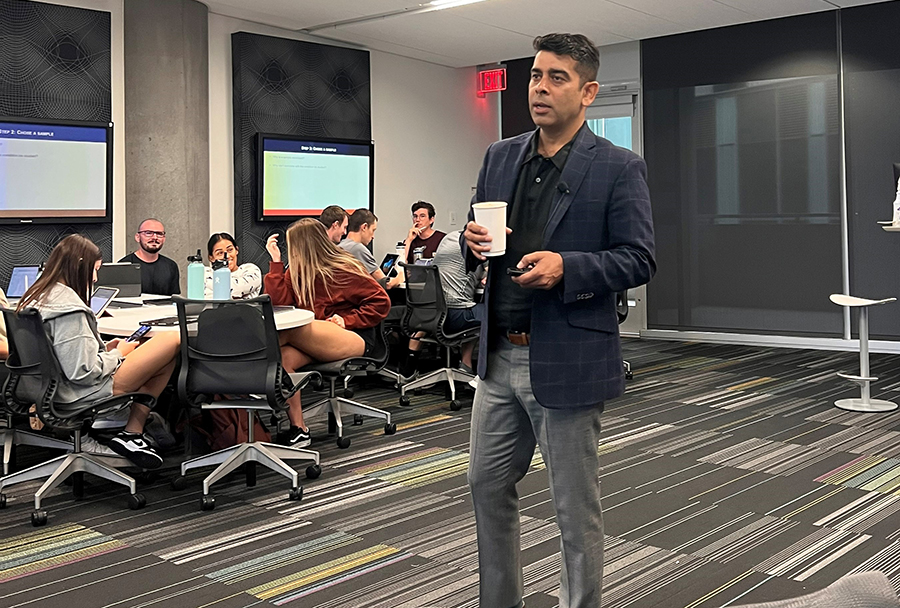
NAU’s Dr. Amit Kumar research receives R01 grant for stroke research
For stroke victims, demographics just may be their destiny. NAU professor Dr. Amit Kumar, is working to identify that pattern and change it.
Amit Kumar, an assistant professor in Northern Arizona University’s College of Health and Human Services on the Phoenix Bioscience Core recently received an R01 grant from the National Institute on Minority Health and Health Disparities to study the relationship between race/ethnicity, poverty and stroke treatment and recovery.
The five-year, $3.8 million award will enable Kumar to investigate how stroke victims’ race and income level factor into their post-stroke rehabilitation care and overall health outcomes. Research in this arena has uncovered a disturbing trend—right now, the two most pronounced disparities in stroke recovery occur in racial and ethnic minorities and adults with low socioeconomic status, which Kumar has codified as those covered by both Medicare and Medicaid. Studies have shown that having pre-existing comorbid conditions leads to poor health outcomes. Being a minority and from a poor socioeconomic status are akin to a pre-existing comorbid condition in health care.
“Growing up in a low-income farming family in the Bihar state of India, one of the world’s poorest regions, my family members had to travel for 15 hours to New Delhi for better care,” Kumar said. “I have also seen the prevalence of caste-based discrimination in India, which have some overlapping similarities to race-based discrimination. The persistent, systemic inequalities that affect the daily lives and health of minorities are a well-known epidemic with no vaccine.”
Kumar aims to fill in the gap of the quality and amount of rehabilitation care in in-patient facilities and how a patient who was hospitalized after an acute stroke and how that post-stroke care looks different for people of different ethnicities and socioeconomic status. Further, they don’t exactly know how different care amplifies the disparity.
“Identifying these disparities in care represent opportunities for health care providers to mitigate disparities in patient outcomes,” Kumar said. “Better, more equitable patient outcomes mean more stroke victims make a quicker, more extensive recovery.”
Read more about the research at NAU.edu.
More news from the PBC
- PBC Arts Committee Student Grant to showcase student research and innovation through art
- Ten Arizona research teams earn $100K Flinn Foundation seed grants
- Unlocking the immune system’s potential to fight skin cancer
- ASU professor named Rural Health Fellow
- Phoenix Bioscience Core Unveils XLR8 PBC to Propel Scale-Ready Health Tech Companies
- ASU selected as home and partner for CHIPS and Science Act-funded national facility for semiconductor advanced packaging
- $3.9 Million Grant Seeks to Expand Primary Care and Rural Tracks for Medical Student Training in Arizona
